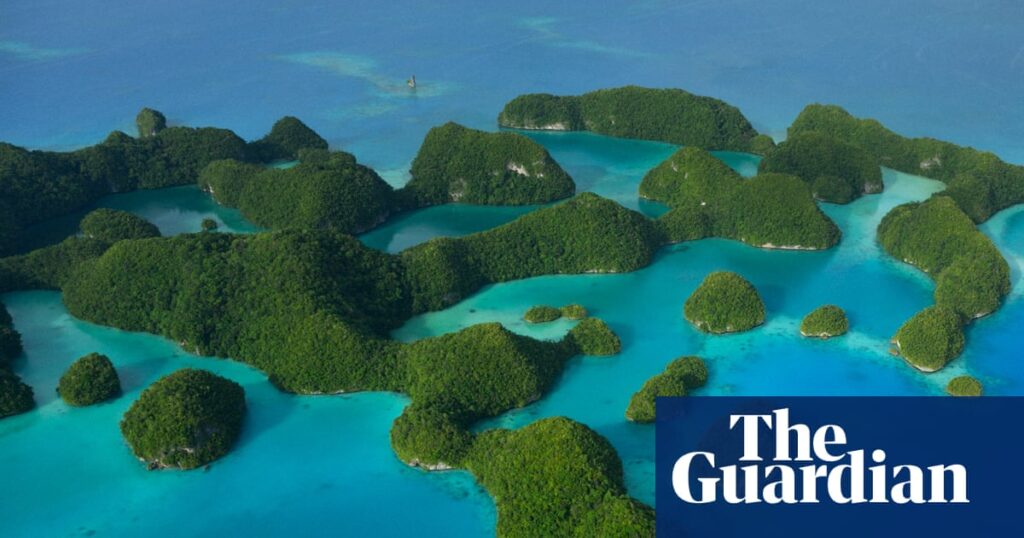
“It broke my heart.” Surangel Whipps, president of the tiny Pacific nation of Palau, recounted his reaction while sitting in the front row of the UN’s general assembly in New York, as former U.S. President Donald Trump delivered a controversial speech on September 23. Whipps anticipated the usual rhetoric from Trump, but the vitriol directed at climate science was unexpected. Trump dismissed the climate crisis as a “green scam” and “the greatest con job ever perpetrated,” a stance that alarmed many global leaders.
Palau, home to nearly 20,000 people, faces existential threats from rising sea levels and more intense storms. The nation represents the frontline of climate change impacts, with the potential for its entire population to become climate refugees if global temperatures rise beyond 1.5°C for an extended period. “Our children need hope, they need to be inspired,” Whipps emphasized, highlighting the need for global unity in tackling climate challenges.
The Populist Tide and Its Impact
The dismay expressed by Whipps is echoed by vulnerable nations worldwide. Recent years have seen a surge in populist politics challenging climate action, with Trump’s rhetoric being a prominent example. In the European Union, right-wing factions have delayed decisions on emissions targets, while the UK’s Reform Party openly denies climate change. In Argentina, Trump ally Javier Milei has dismantled climate policies alongside economic reforms.
Despite these setbacks, public sentiment remains largely supportive of climate action. Surveys indicate that 89% of people globally are concerned about the climate crisis and demand action. Political victories for pro-climate leaders like Mark Carney in Canada, Anthony Albanese in Australia, and Claudia Sheinbaum in Mexico offer a counter-narrative to the populist trend.
Challenges and Opportunities at Cop30
This week, the city of Belém in the Amazon will host the UN climate summit, Cop30, where geopolitical forces will converge. The summit’s agenda includes 145 items, addressing greenhouse gas reductions, financial aid for poorer nations, Indigenous rights, clean energy expansion, and forest preservation. However, the backdrop of rising global temperatures and recent climate disasters underscores the urgency of the discussions.
“The Paris agreement is our mandate; Belém is the test,” said Ban Ki-moon, former UN Secretary-General. “In a fractured world, the Paris agreement remains the one pact that shows humanity can act as one – but it needs resuscitation through action, not rhetoric.”
Brazil, as the host nation, aims to preserve unity amid global divisions. The summit is considered the most consequential since the Paris Agreement, with nations needing to revise their climate targets urgently. Past pledges have fallen short, projecting a temperature rise of 2.7°C, far above the 1.5°C goal.
Addressing the Emissions Gap
Nationally determined contributions (NDCs) are central to the Paris Agreement, outlining how countries plan to reduce emissions. Yet, less than 90 countries have submitted their NDCs, with major players like China and the EU only providing preliminary indications. Current NDCs cover just a sixth of the necessary emissions cuts to meet the 1.5°C target.
Brazil’s reluctance to prioritize NDC discussions has drawn criticism, though a space was eventually created within the Cop30 agenda to address this “emissions gap.” Brazil emphasizes “implementation” over negotiations, pointing to real-world progress in renewable energy and clean technology as evidence of effective climate action.
Demands of the Global South
Developing countries will assess Cop30 based on its ability to secure financial assistance for climate adaptation and clean energy investments. Last year’s Cop29 set a goal of $1.3 trillion annually for developing nations by 2035, but only $300 billion was pledged by wealthy countries. The remainder is expected from private sector initiatives.
“We need a fair deal,” asserts Mohamed Adow, director of Power Shift Africa. “These are not acts of charity – they are investments in a stable, livable planet.”
The Tropical Forests Forever Facility (TFFF) is a key focus for Brazil, seeking $25 billion in pledges to protect forests. However, discussions on fossil fuels, the root cause of climate change, remain contentious. Brazil, a major oil and gas exporter, defends its right to resource exploitation, arguing that rich countries should bear the responsibility for climate action.
A Just Transition and Future Prospects
Addressing fossil fuels within the context of a “just transition” is crucial, ensuring that vulnerable communities are not left behind in the shift to clean energy. UN Secretary-General António Guterres highlighted the exploitation of countries rich in critical minerals essential for clean energy, calling for equitable practices.
“The critical minerals that power the clean energy revolution are often found in countries that have long been exploited. And today, we see history repeating,” Guterres warned.
As Cop30 unfolds, Brazil’s role in facilitating discussions will be pivotal. The summit’s success will depend on bridging divides between rich and poor nations, ensuring that climate action is both ambitious and equitable. The stakes are high, with the future of global climate policy and the welfare of vulnerable populations hanging in the balance.







